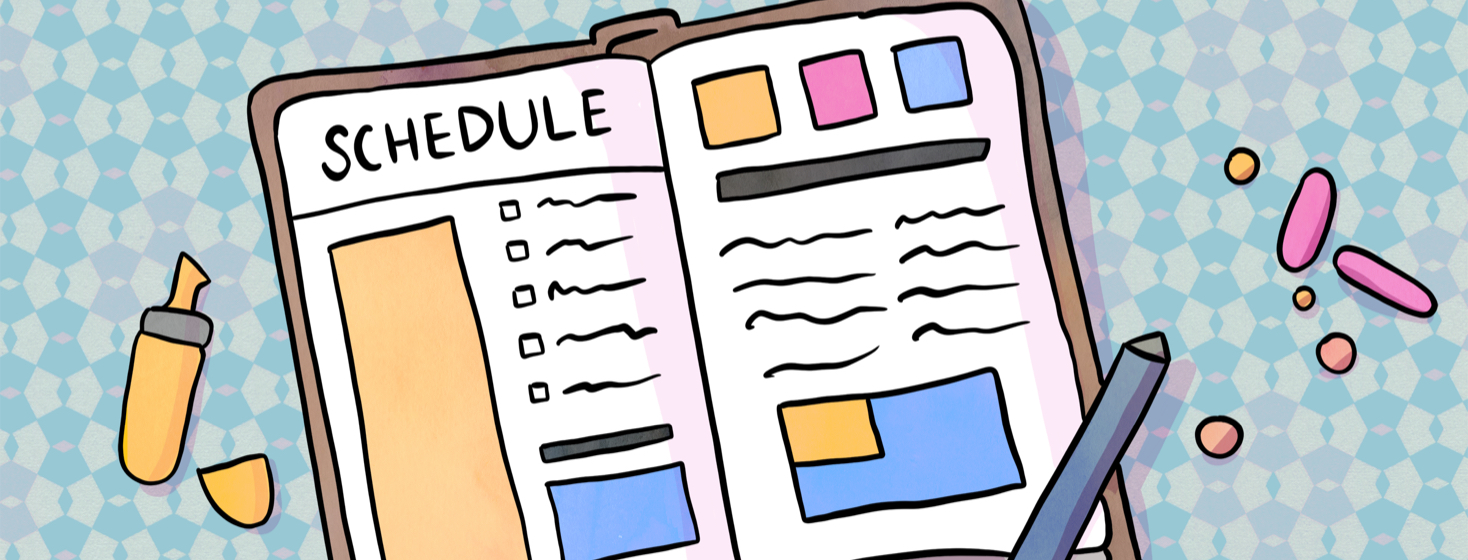How to Eat an Elephant
Asthma is just one of many chronic illnesses that I deal with on a daily basis. I will not bore you with the complete list, but it is sufficiently long. Balancing all of my health issues along with severe asthma has been challenging at times, but I have managed to make it work. I’m able to juggle my multiple illnesses by planning ahead, learning as much as I can about my disorders, and staying organized. I do my best to manage all of my chronic illnesses and stay in charge of them, so they don’t end up in charge of me.
How I manage multiple chronic illnesses including severe asthma
Staying organized
With so many different conditions, staying organized is one of the most important things I do. I keep a calendar with all of my appointments and keep notes for each appointment. This allows me to look back on things I have addressed in the past. I also keep a running agenda for each provider on my phone. I write down questions or comments between appointments, as they come to mind. It makes appointments much less stressful and I know I haven’t forgotten anything.
Keeping my medications organized is incredibly important. I take a lot of different prescriptions, some every day, and others just as I need them. I used pillboxes for a long time, and still do, but in the last year, I rented a medication dispenser that has been super helpful in keeping me on track with my meds, reminding me when I need to take them, and alerting me when I need to get refills. I know this is not an option for everyone, as rental fees can be expensive, but I’ve found it to be well worth the investment. I recently transferred all of my prescriptions to a specialty pharmacy. They are able to sync all of my prescription refills to once a month. They also provide a free service to organize my meds for me so I don’t have to use a pillbox for the medications that don’t fit in my pill dispenser.
Being prepared
Having multiple chronic illnesses means that you have to expect the unexpected. There are a few ways I make sure to stay ahead of any flare that could potentially pop up. First, I keep a hospital bag in the car at all times. I have one for overnight stays and a larger one for extended stays. This may seem excessive, and it is, but I cannot tell you the number of times those bags have come in handy!
There are lots of other ways to be prepared for emergencies too. For people with chronic, potentially life-threatening conditions, it is always good to have a medical ID bracelet. This can be life-saving if you are unconscious or unable to communicate. I also keep a detailed medical history on my phone. Apple Health has a great interface for storing important medical information like health conditions, medications, and emergency contact information.
Another great way to be prepared is to have a list of your medications that you can print out and hand to your doctors during appointments, especially when you are seeing a physician for the first time. I have found that this saves a lot of time and saves me from having to remember everything I take.
Mental health
Taking care of my mental health is one of the most important things I do to manage my multiple illnesses. I have worked with a counselor on and off throughout my life and have found it to be very helpful. I’m very purposeful about identifying my coping skills and making them easily accessible in case of crisis. I have found it crucial to my mental health to have a support system of people who understand the impact my illnesses have on me physically and mentally.
Vigilance
We’ve all heard the saying “knowledge is power”, and that could not be more true when dealing with multiple medical conditions. There are so many resources available now that make it easy to study different conditions and how best to treat them. I have found that I am better able to communicate with my doctors and help them understand what I need when we can collaborate about my illnesses, instead of me just relying on my doctors to be the “experts”.
How to eat the elephant
Doing the above has allowed me to be the master of my illnesses, not the other way around. It can certainly be overwhelming at times, but I have found that it is best to take each problem as it comes. Ironically, I seldom have more than one big issue that pops up at once. My illnesses are a rotating door, no sooner has one issue been solved than another presents itself.
My dad always told me, “you can’t eat the elephant all at once, but one bite at a time.” This is a great perspective on chronic illness. It’s easy to get overwhelmed when you think about the big picture and all the things that have to be juggled to keep things manageable. I find it best to break down and conquer one illness at a time, one bite at a time.
How do you manage multiple chronic illnesses, including asthma, and eat the proverbial elephant? Let us know in the comments!

Join the conversation